The Heart of the Local Salon
A reflection on laughter, sisterhood, and the legacy of African hair spaces
I’ve had dreadlocks for as long as I can remember. From the age of five or six, these twisted strands of hair have been part of my identity. Therefore, throughout my life, I’ve had to make regular visits to my local salon to maintain my locs, and what started as a simple routine became something deeper. Over the years, I’ve grown to truly appreciate my local salon, not just for the way it nurtures my hair, but for the warmth and care that lives within its walls.
It’s in that space that I’ve laughed until my stomach hurt, shared stories with women I’ve never met before, and eaten food passed around like we’re all cousins at a family gathering. The stylists know your name and remember your last conversation. Strangers for that moment become familiar. Its noisy, vibrant, intimate. And it was in those sacred moments that I came to a quiet realization: this wasn’t just about me or my neighborhood, what I was experiencing was part of something much bigger
I began to notice that the atmosphere in my local South African salon, the camaraderie, the storytelling, the generosity, was echoed in stories shared by countless African women from other countries. Whether it was Zimbabwean, Congolese, Nigerian, or Ethiopian women sitting beside me, or content creators on social media describing their own salons, I recognised the same spirit of connection and care. It dawned on me that African salons, no matter where they are, hold something communal and sacred. They are spaces where culture, sisterhood, and softness live. Where our hair is loved, but more importantly, where we are loved.
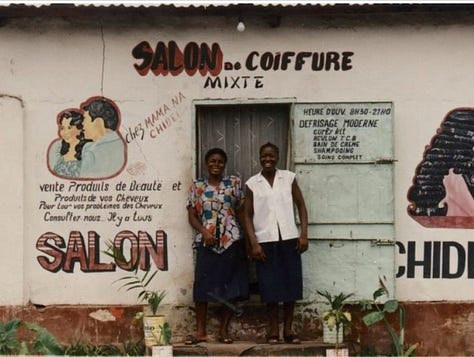
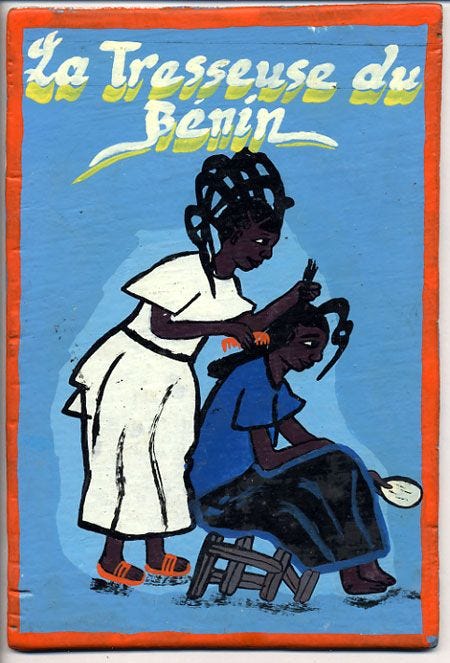
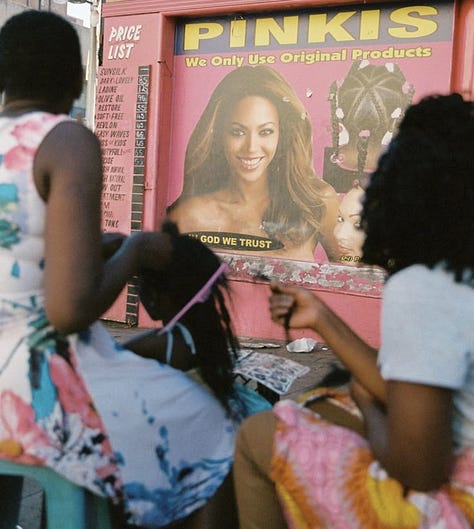
There’s something truly beautiful about African salons, there’s a special kind of social warmth you feel as soon as you walk in. Hair dryers buzz in the background, that nostalgic smell of Dark & Lovely hair products lingers in the air (the real ones know. Haa!), toddlers nap on their mothers’ laps, the barber cracks jokes at the back, while others laugh, gossip, or slip into deep conversation as the TV hums in the background. It’s a space of movement and stillness all at once.
Its more than just about hairstyles. For me, it’s the refreshing atmosphere and how these salons provide a safe space for women to be themselves, express themselves and their opinions, and explore different looks. It’s a space where we laugh freely, seek advice about love and relationships and share stories without judgement. These salons carry out our vulnerability.
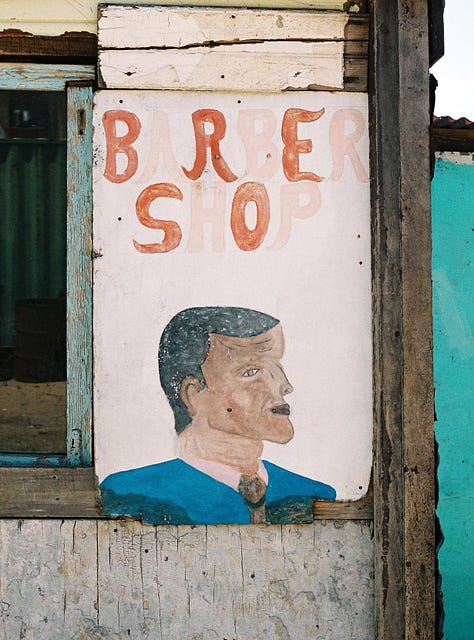
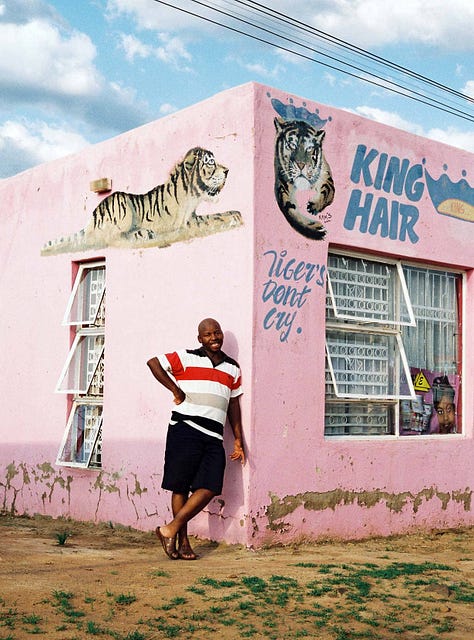
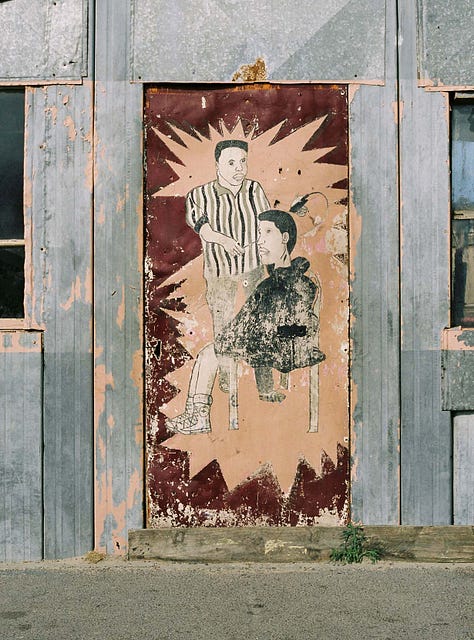
But it’s not just the energy inside, it's also in the aesthetic. Across the continent, I have realised many salons share the same visual language: bright walls painted in vibrant pinks, oranges, or electric blues; hand-drawn signs with cool names like “Sista Cutz,” “Blessing Hair Palace,” (I once came across one called “The Finger of God”); and those iconic collage posters of braided, permed, and twisted hairstyles stuck proudly outside or in the windows. Long before Pinterest or Instagram, these posters were our inspiration boards, our version of moodboards before we even had the word for it. A catalogue of beauty, creativity, and expression available to everyone walking by.
Beyond personal care, they’re also places of resilience and livelihood. Through them, we’ve seen women show incredible entrepreneurial spirit, starting small and building loyal clienteles, managing staff, navigating rent, stock, and salaries with sharpness and strategy. Many have built full lives through this craft, supporting families, sending children to school, and contributing to their local economies. The salon is both sanctuary and enterprise, a space of beauty, business, and brilliance.
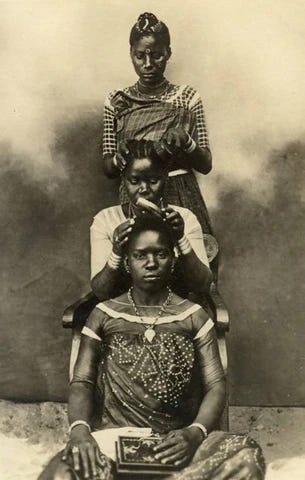
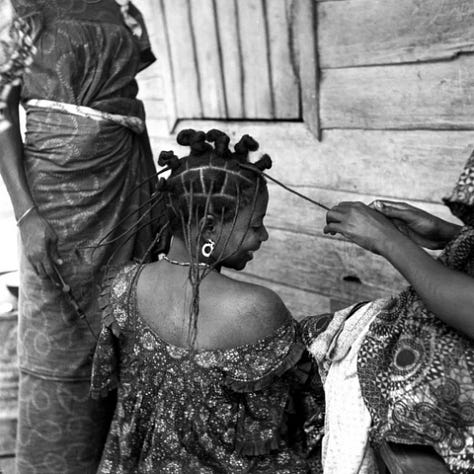
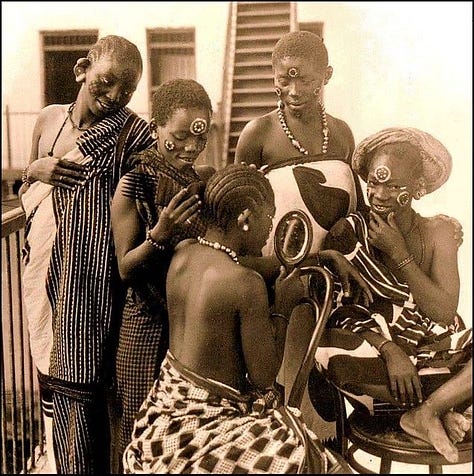
The community we experience in African salons today didn’t appear out of nowhere. It is part of a long-standing tradition in African societies where hair was never just about aesthetics, it was about identity, belonging, and connection. In many precolonial communities, grooming hair was a deeply social ritual. Women would gather in courtyards, under trees, or in the heart of the village to braid, twist, and style one another’s hair. These weren’t transactional spaces, they were communal, emotional, and symbolic.
Hair signified everything from marital status and age to tribe and spirituality. The act of grooming was intimate and relational, often passed from mother to daughter, friend to friend. Stories were shared, lessons were taught, and cultural knowledge was passed down, one strand at a time.
Today’s salons carry that same energy. Though the tools may be different, clippers instead of cowrie shells, dryers instead of the sun, the spirit remains. Salons are modern courtyards, where women still gather to care for one another, build trust, and sustain a tradition that’s as old as the continent itself. It speaks to how much these spaces mean to us. We don’t just go to salons to change our looks. We go there to feel seen, to belong, to reconnect both with ourselves and with each other. And that feeling, that essence, is something many of us carry with us long after we leave the chair.
It’s no surprise then, that young people across the internet are drawing from this energy. The aesthetic of African salons, the bold colours, the hand-drawn signs, the iconic hairstyle posters, has found new life in art, music videos, fashion shoots, and digital design. It’s a celebration, not just of beauty, but of memory and identity. And in reimagining these visuals, this generation is saying: this matters. It always has.
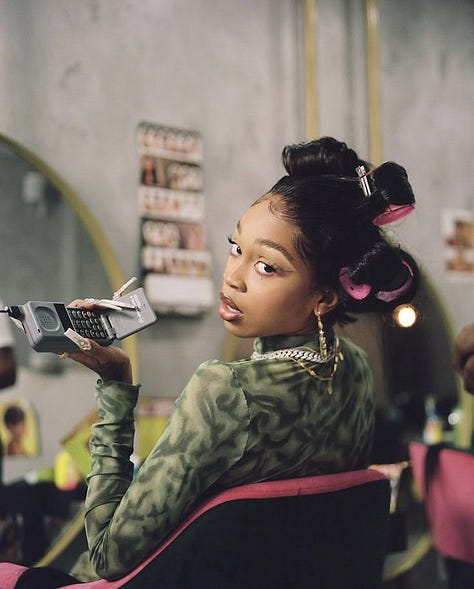
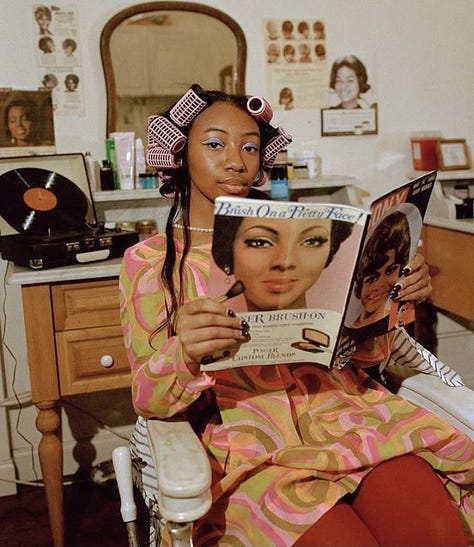
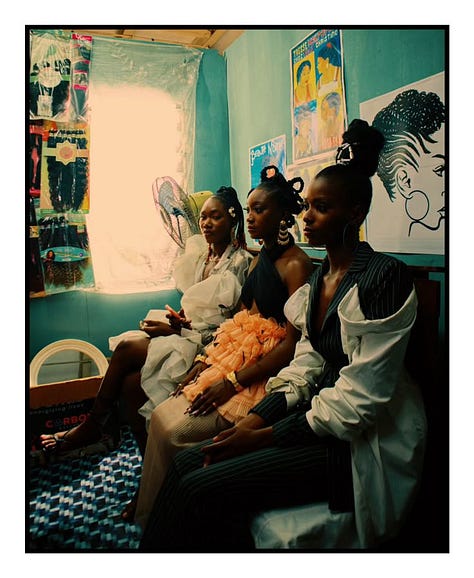
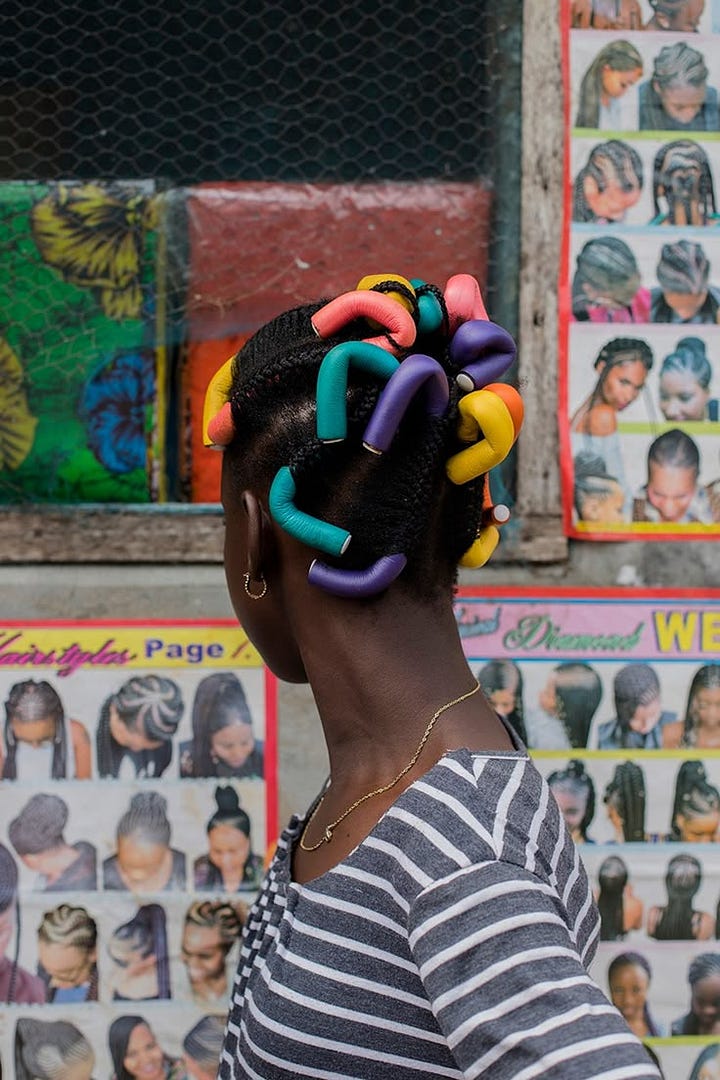
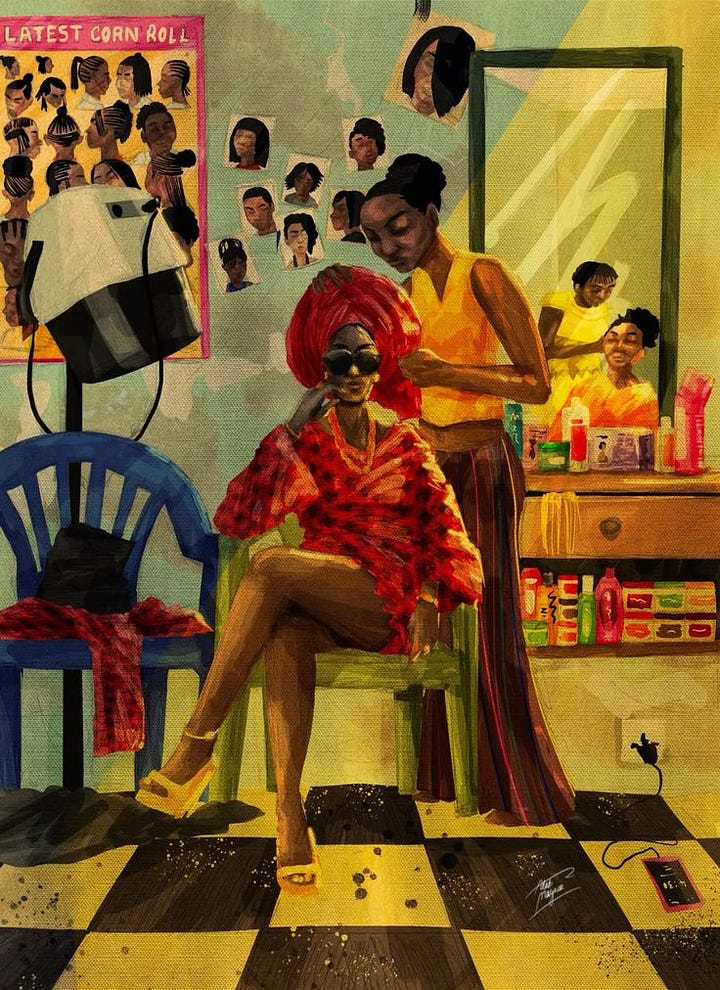
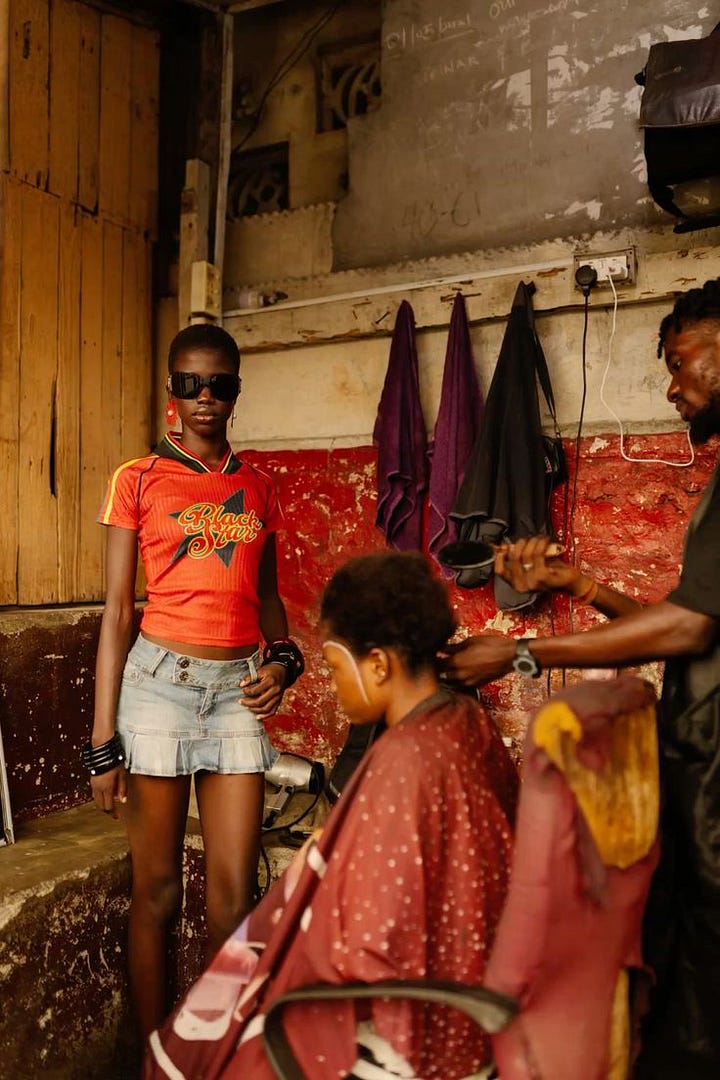
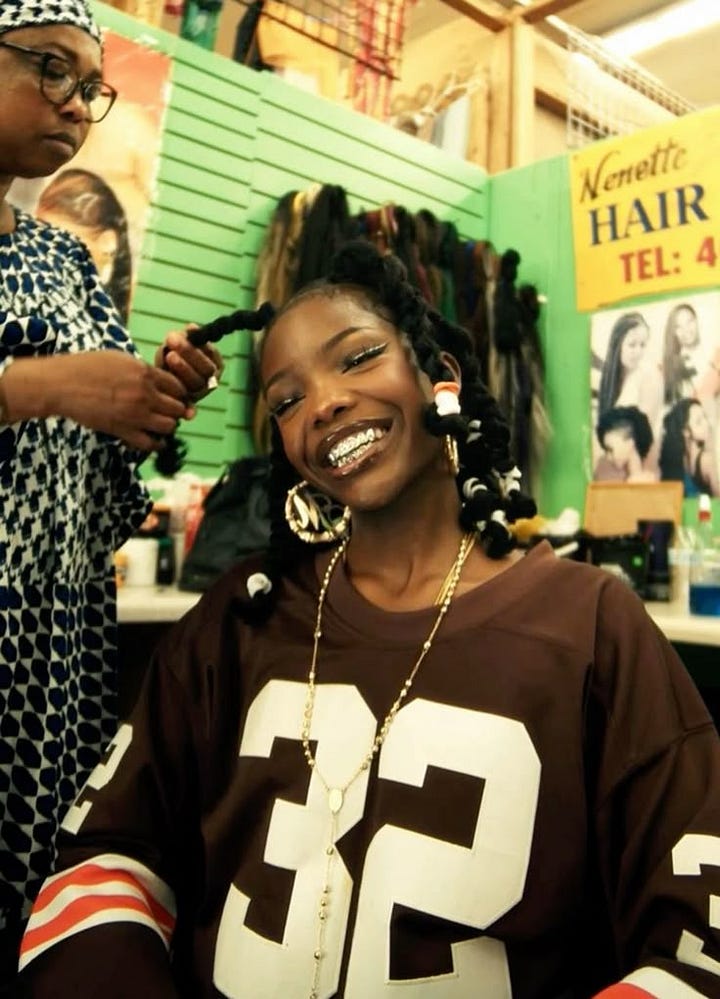
I would like to dedicate this post to Aus’ Angie and her sisters at our local Jabu Stone Salon back home for being my home and a safe space, for both my hair and me. Y’all keep me fresh <3.
Unitil next time, stay sweet, my pookies 💌
Love, Matso
♪ Tiktok: @thefenfojournal







No because I'm obsessed with everything you put down! You captured this all so well <3 Yes, yes and yess.